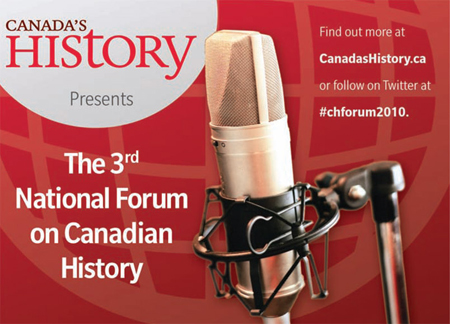 THUNDER BAY – More than one million people in Canada identify themselves as belonging to one of the three main groups of Aboriginal people in Canada: First Nations, Inuit or Métis. Like many countries, Canada has been engaged in a process of redress for its aboriginal peoples. This has had a far-reaching influence not just in public policy, but also how the history of this relationship is taught in schools.
THUNDER BAY – More than one million people in Canada identify themselves as belonging to one of the three main groups of Aboriginal people in Canada: First Nations, Inuit or Métis. Like many countries, Canada has been engaged in a process of redress for its aboriginal peoples. This has had a far-reaching influence not just in public policy, but also how the history of this relationship is taught in schools.
Greg Melleuish, an Australian historian and an active voice in Australia’s ‘History Wars’ debate over reformation of their national history curriculum will share his own views on reconciling Aboriginal interpretations of history and identity at the National Forum on Canadian History being held on Thursday, November 18, 2010.
An initiative of Canada’s National History Society, produced with the support of the Department of Canadian Heritage and TD Bank Group, the Forum brings together three leading international thinkers in history education and citizenship to make their case to over 125 academics, classroom teachers, museum curators, archivists, public historians as well as popular writers, media producers, and students of history.
Other presenters at the Forum include Peter Furtado of the United Kingdom, a former editor of History Today magazine and world historian; and Nicole Tutiaux-Guillon, a history educator whose research about contemporary young French citizens’ attitudes and perceptions of history is influencing not just what history is taught in France, but how it is taught. The Honourable Jason Kenney, Minister of Citizenship and Immigration will open the Forum with a keynote speech about the role of history in Canadian citizenship and national identity.
The event is part of Canada’s History Awards and will involve the 2010 recipients of the Governor General’s Awards for Excellence in Teaching Canadian History, as well as noted Canadian historians Charlotte Gray, Desmond Morton, Jack Granatstein, Margaret Conrad, and Jocelyn Létourneau.
Deborah Morrison, President & CEO of Canada’s History Society says, “We tend to think we’re the only country whose history and national identity is contested. We’re not. Canadians have much to gain from learning about international experiences, and by exploring some of the key challenges we face in a global context.” Morrison adds, “We want the participants to think more broadly and openly about potential strategies and solutions for overcoming the challenges we face in improving how history is taught in our schools and remembered in our communities.”
This year’s event will feature three sessions of an hour and a half in length and are structured to encourage questions and dialogue with the audience. The event will be held at the National Library and Archives auditorium, 395 Wellington Street. It is open to the public and free of charge to attend. The presentations will also be broadcast live online.
To register for the National Forum on Canadian History online or onsite, and to preview podcasts with our Forum presenters visit the education section of www.CanadasHistory.ca
